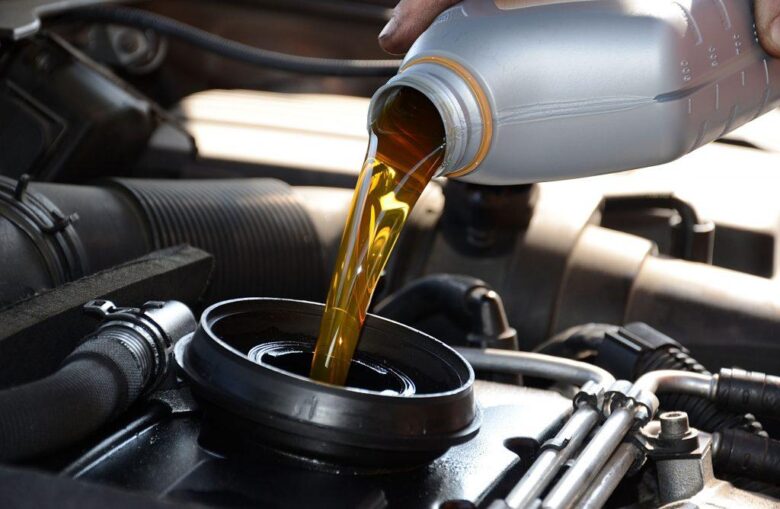For a car owner, low oil pressure can be terrifying and even the worst. It is that dreadful feeling when the light on the dash board comes on, which is accompanied by a rush of fear. The engine needs good oil pressure to run smoothly, and if it is too low for an extended period, there’s a risk of serious harm.
You think all is lost? Well, sit back and take some comfort! This knowledge should form the basis for a more aggressive approach in seeking redress to the problem in the following subsequent sections. Whether a professional mechanic or an amateur tinkering with the car for a few hours, how to troubleshoot is critical and helps one cut down on expenses and leave their cars in no worse condition. Let’s take a closer look at what leads to low oil pressure, how it can be detected at its earliest stages, and how to address it most easily.
Causes of Low Oil Pressure:
Low oil pressure can be a problem due to different reasons in your car. A very notable one is oil level. If the engine oil is beneath the recommended level, then circulation will not take place as needed.
Another possible reason could be an oil pump that is malfunctioning. This is a very important part of the engine, for it helps maintain proper pressure and flow in the engine. If you have a pump that was used for a long time or is damaged, then there is going to be insufficient lubrication.
An unclogged oil filter plays its part in the working of the engine. In cases where dirt and accumulated debris block the oil passages, leading to lower pressure. Such events are prevented to a certain extent by implementing planned maintenance.
Furthermore, incorrect oil viscosity may also impede oil pressure stability. It is important to use the right type of lubricating oil for the engine as per manufacturer specification; failure to do this may result in problems.
Overall pressure can also be lost due to internal leakage of the engine. It is inevitable that some sort of joint gaskets and seals will fail in their intended function and allow restrained fluids to leak.
Signs of Low Oil Pressure:
One of the things that low oil pressure refers to is very clear in a number of incidences. The very first manifestation that one may witness in this situation is the warning light, which is found in the dash board. Very often this light looks like an oil can, and it states—there is something wrong.
One other common sign of low oil pressure is the presence of strange engine sounds. When there is too much knocking noise or grinding sounds, there is a possibility that there is poor circulation of the oil. An engine requires sufficient lubrication to perform smoothly without any troubles.
You may also experience slower acceleration or power loss when you are driving. Low oil pressure has a negative influence on normal activity, thereby making the vehicle unresponsive.
Other than this, try also to assess whether there are some strange smells. For instance, the burnt smell could show possibilities of the unit overheating due to a lack of oil circulation.
You should also be concerned with any temperature gauges that may fluctuate. An increase in operating temperatures could be a warning sign that your engine is running hotter than it should be and may be running out of oil to cool it effectively.
How to Resolve the Problem of Low Oil Pressure?
Check if your oil level is correct. So is the level of oil always sufficient to your vehicle’s oil level gauge? If the oil is too low past the recommended areas, add some without exceeding the correct type for your vehicle. Then, look for leakage. Look around the engine and under the car for any signs of leaking oil. Even the smallest puddles could be indicative of a serious problem.
If so, think about getting a new oil filter. If it is clogged up with debris, it may filter too much and thus cause low pressure. The oil pressure sensor should also be examined. This may malfunction and affect its ability to signal oil pressure levels even when the system is normal. Check your oil pump. Is it operating as it is supposed to? Check out for odd sounds or performance that may indicate it is faulty.
How to Avoid Low Oil Pressure:
- It is important to restore normal oil levels by promptly changing the oil. This is because new oil is able to help prevent friction and wear in the moving parts.
- The type of oil should be appropriate as well. The viscosity of the motor oil to be used should conform with every manufacturer’s requirement.
- Watch out for fluid levels. Running low on engine oil means lower pressure, so make it a point to check this often.
- Also, check on your engine temperature. Extreme heat can alter the viscosity of the oil, thereby causing pressure problems.
- Think about adding an additional gauge to monitor these readings in real time. This permits you to detect anomalies before they develop into more serious problems. Carrying out these recommendations will ensure that the incidents of low oil pressure are mitigated in the future.
Seeking Professional Help:
But other times it doesn’t matter what you do or how persistent you are, in which case you have to call for a professional. A trained mechanic is well equipped to handle aggressive problems that require more than what a qualified person can manage. He can perform a complete evaluation of your car’s oil system. Which would also include looking for oil leaks, checking the working of the oil pump, as well as other parts that could lead to the low oil pressure problem.
In addition to these tasks, experts may also provide suggestions that are appropriate based on their observations. They may even even go so far as to recommend repairs or maintenance that will assist in the restoration process. Failing to take care of an abnormally low oil pressure problem can have catastrophic results in terms of the engine. Consulting specialists guarantees you take steps to protect the wellbeing of your car.
Conclusion:
When there is a low oil pressure problem, fixing it is essential for the good condition of the engine. There is every reason to recommend all the steps not to be neglected since they may bring amazing repairs costs. Follow-ups and remember the regular checkups come in very handy. As a car owner, having the knowledge of warning signs beforehand is very advantageous. Focussing, be it about oil or any other fluids or about cannabis, being oil smart makes all the difference. Knowledge is the best power to use in order to attain best results.
In case they remain unresolved despite your best efforts of trying to resolve them from your end, you should seek help. Car specialists are able to help in some details that are sometimes not achievable through DIY strategies. Caring for your engine does not mean simply getting it to work. It means preserving it for as long as it can last. Have confidence with your driving by making sure you undertake consistent easy maintenances and knowing the likely issues to expect in between.
FAQs:
1. How do you know when operating pressure in the engine’s oil is too low?
When the oil pressure is less than 20 psi at idle, that is around 1 minute’s time if one idles in the tis one may sense trouble. Still, this figure might differ depending on the specifications of one’s car.
2. How many times a year should I check my oil?
It is wise to check your oil level once every month or before every long-distance drive, such as vacations, to prevent being disappointed by your vehicle however much you are in a hurry. Routine checks are effective.
3. Is it okay to drive a car with a low oil pressure?
Operating the vehicle in low oil conditions is risking a relatively high-scale engine failure due to negligence of lubrication.
4. What kind of motor oil should I use in those conditions to achieve the best result?
You must check the manufacturer’s recommendations, which should be available in the owner’s manual regarding viscosity and type of motor oil.
5. When do I need to call professional assistance regarding a low oil pressure problem?
A mechanic needs to be seen at once if simple troubleshooting does not rectify the concern or if one has no clear idea what needs to be done next. The reason for this is to avoid ignoring the situation because it will result in higher costs trying to rectify it.




